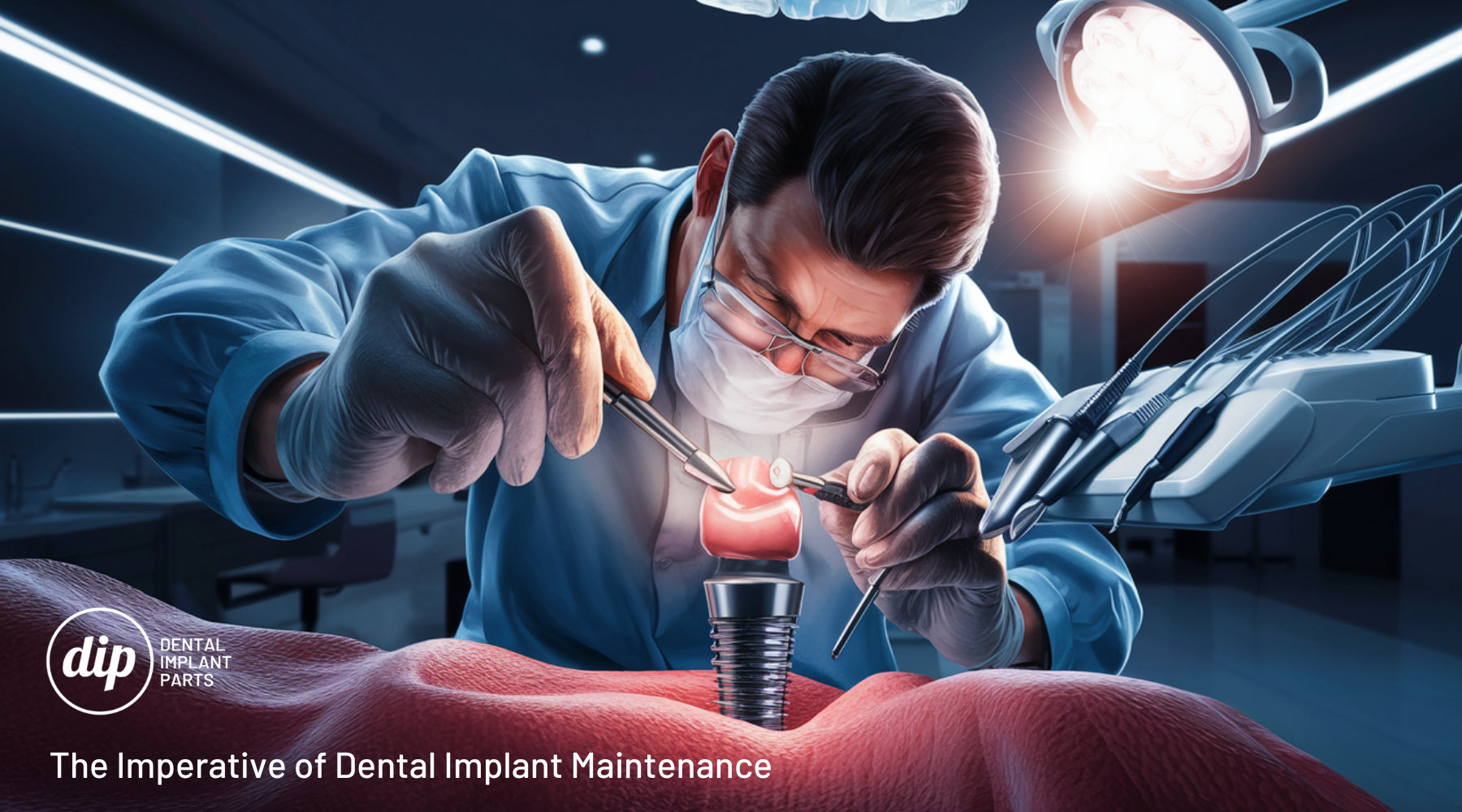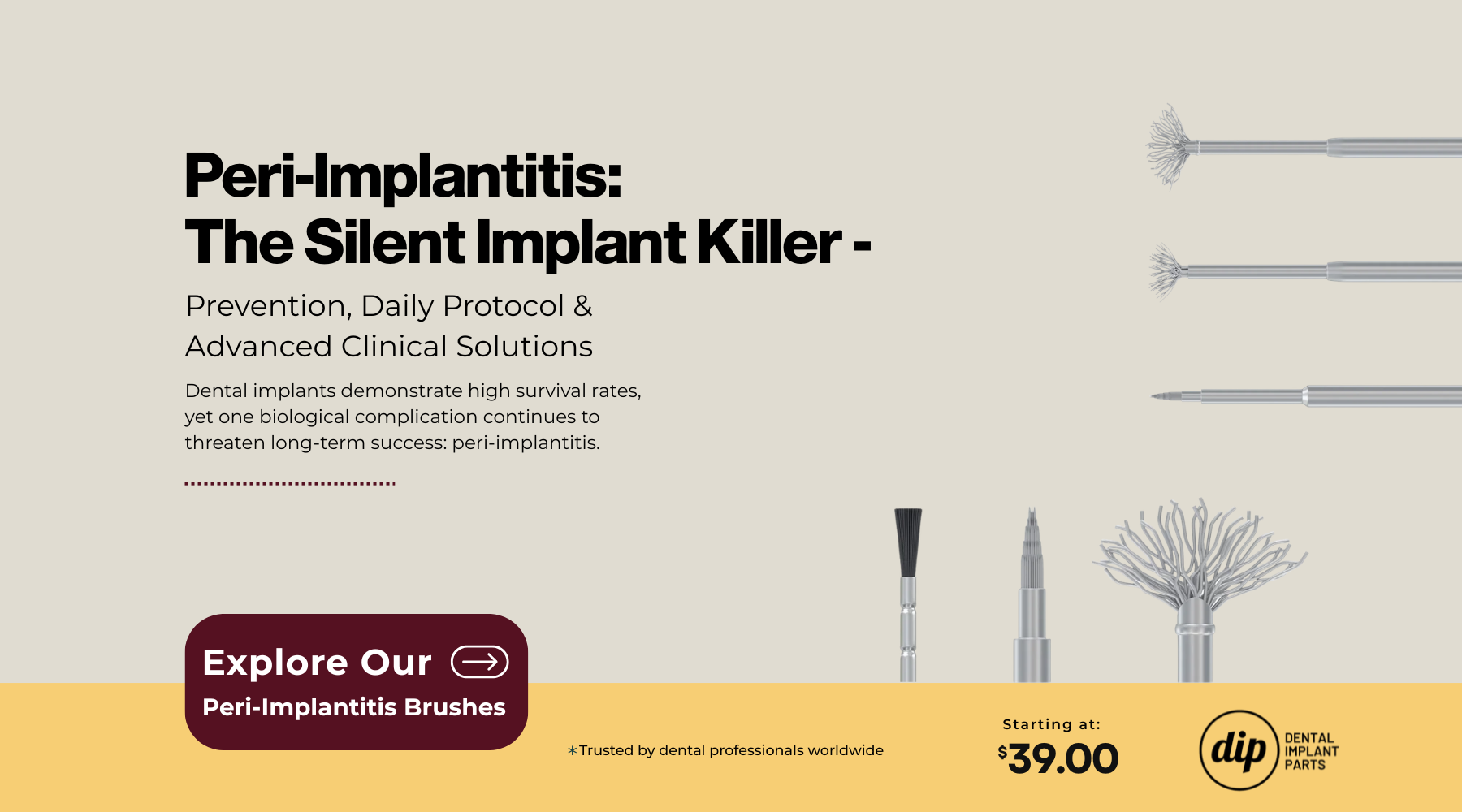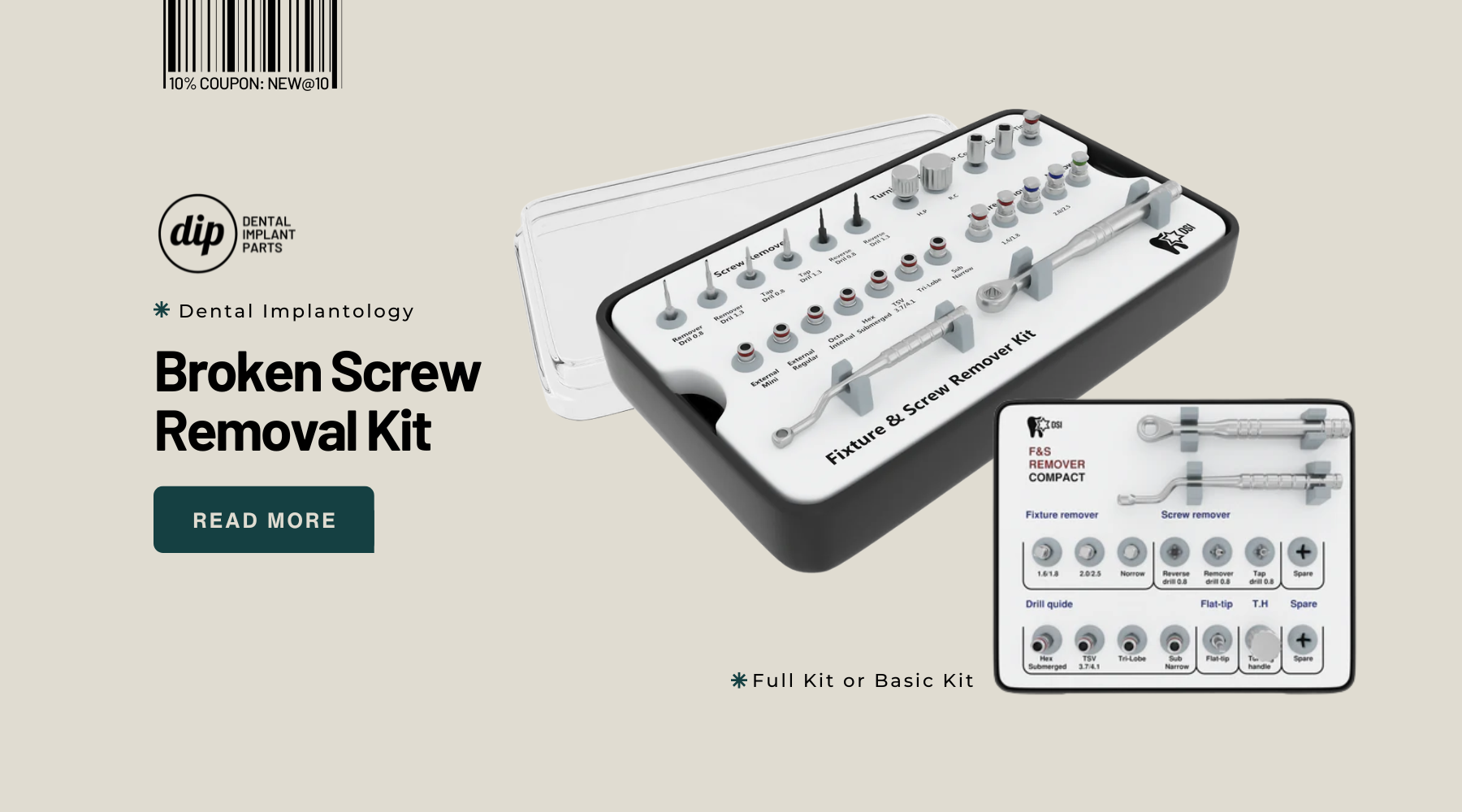We are delighted to welcome you to this blog Issue of Dental Implant Parts!
This article delves into the crucial topic of dental implant maintenance within general dental practice (GDP). As dental implant placement becomes increasingly accessible, the responsibility for their long-term success falls not only on specialists but also on general dentists.
The Rise of Implant Dentistry in General Practice
The number of dental implants placed globally continues to rise, offering a predictable and reliable tooth replacement option. This trend coincides with a growing number of general dentists acquiring the training and expertise to perform implant procedures. While implant placement was once solely within the realm of specialists, this shift allows more patients to benefit from this advanced treatment.
However, implant success hinges not just on meticulous placement, but also on consistent and proper maintenance.
Understanding Peri-Implant Diseases: The Threat to Implant Longevity
Implant failure, though uncommon thanks to advancements in technology and techniques, can occur due to various factors. Peri-implant diseases, encompassing peri-implant mucositis and peri-implantitis, are the leading long-term complications associated with implants.
-
Peri-implant mucositis: Similar to gingivitis in natural teeth, peri-implant mucositis is an inflammatory condition affecting the soft tissues around the implant. Thankfully, it's easily preventable and reversible with improved oral hygiene practices.
-
Peri-implantitis: This more severe condition resembles periodontitis and presents a significant challenge. Peri-implantitis involves inflammation and bone loss around the implant, potentially leading to implant failure. Studies suggest that peri-implant mucositis can affect up to 45% of implants, while peri-implantitis may impact around 20%.
These statistics highlight the critical need for meticulous maintenance and monitoring to prevent these complications and ensure implant success.
The Evolving Role of General Dentists in Implant Care
With the growing number of implant patients, the responsibility for early detection and treatment of peri-implant diseases increasingly falls on general dental practitioners. This article emphasizes the importance of:
-
Identifying Healthy Peri-Implant Tissues: Understanding the appearance of healthy peri-implant tissues is crucial for recognizing early signs of inflammation.
-
Effective Assessment Techniques: Probing, using either a metal or plastic probe, remains an essential tool for assessing peri-implant health.
-
Superstructure Design and Occlusion: The design of the implant superstructure significantly impacts cleanability. Furthermore, proper occlusal considerations are crucial for maintaining peri-implant health.
A Collaborative Approach to Peri-Implant Management
Successful management of peri-implant diseases requires a team approach. This article explores the critical roles played by:
-
General Dental Practitioners (GDPs): GDPs are at the forefront of implant maintenance, performing routine checkups, identifying potential problems, and providing initial treatment for peri-implant mucositis.
-
Dental Hygienists: Dental hygienists play a vital role in educating patients on proper implant hygiene practices and providing meticulous professional cleanings.
-
Dental Therapists: Dental therapists can support GDPs and hygienists in delivering preventive care and initial treatment for peri-implant mucositis.
Medico-Legal Considerations: Your Responsibilities
The article clarifies the medico-legal implications of managing peri-implant diseases, particularly for implants placed by other providers. Understanding your responsibilities in such situations is crucial for avoiding potential complications.
Beyond Clinical Care: Building Patient Confidence
This article goes beyond the purely clinical aspects of implant maintenance. It emphasizes the importance of building patient confidence by:
-
Understanding Patient Needs: Effective communication allows you to anticipate and address patient concerns regarding implant care.
-
Providing Clear Instructions: Equipping patients with clear and comprehensive instructions on proper implant hygiene is essential for their long-term success.
-
Empowering Patients: Educating patients about implant maintenance empowers them to take an active role in ensuring the success of their implants.
We hope this comprehensive guide serves as a valuable resource for general dental professionals. The articles within this issue aim to enhance the quality of care you provide, fostering a deeper understanding of the complexities involved in maintaining dental implants. This knowledge empowers you to confidently manage and anticipate the needs of implant patients, ensuring the long-term success of their treatment.




